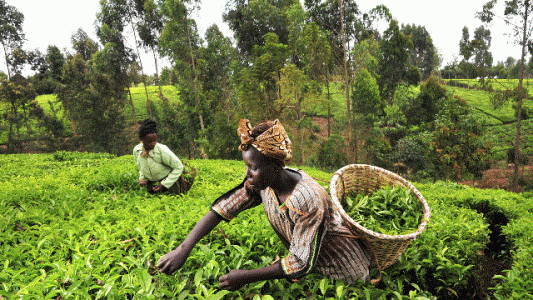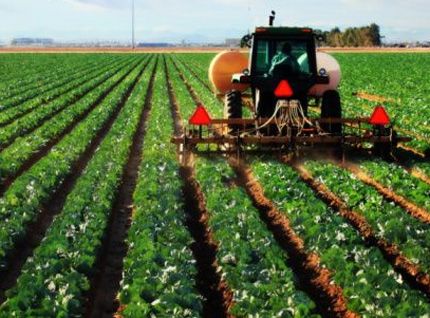Nigeria’s agricultural export sector experienced strong growth from January to September, 2019. The latest report released by the National Bureau of Statistics (NBS) shows that the nation’s top 10 agricultural exports attracted N206.16 billion by the end of September 2019.
According to the report, Nigeria’s top 10 agricultural exports rose by 14.1%, from N180.67 billion in the first three quarters of 2018 (January to September) to N206.16 billion in the corresponding period of 2019.

Sesamum seeds top Nigeria’s biggest Agric export
Based on the Bureau’s report, Nigeria’s major agricultural exports in the first three quarters of 2019 include sesamum seeds (whether or not broken, sesame oil and its fraction), cocoa, cashew nuts, frozen shrimps and prawns, ginger, agro-food items, flowers and flower buds, and plants used for perfumery and coconuts.
- Sesamum seeds have remained Nigeria’s biggest earner of all agricultural exports in the past years. The trend continued into the third quarter of 2019 as N77.04 billion worth of sesamum seeds, sesamum oil and its fraction were exported from Nigeria.
- Further analysis shows that Japan, Turkey, China, Germany and Vietnam are Nigeria’s biggest markets for sesamum seeds.
- The second most exported agricultural goods from Nigeria was cocoa. Nigeria exports fermented cocoa beans, raw cocoa and natural cocoa butter.
- In the first three quarters of 2019, Nigeria exported N66.73 billion worth of cocoa to countries like the Netherlands, Malaysia, Germany, Belgium, and Spain.
- Also, Nigeria’s third-biggest agricultural export was cashew nuts, both shelled and unshelled. According to the report, Nigeria exported N45.6 billion worth of cashew nuts between January and September 2019. They were exported to Vietnam, the United States, Russia, Germany, and Italy.
Other goods on the list of Nigeria’s top 10 agricultural exports chain are frozen shrimps and prawns N7.46 billion), ginger (N3.34 billion), agro-food items (N1.84 billion), flowers and flower buds (N1.59 billion), plants used for ornamental purposes (N1.59 billion), coconuts in the inner shell (N800.99 million) and cotton (N609.33 million).

Agric sector in deficit as import continues to drag sector down
Despite the huge potential in Nigeria’s agriculture sector, the country still imports a large chunk of agricultural goods. According to the NBS report, Nigeria imported N949.8 billion worth of agricultural goods in the period under review.
Analysis of import and export of agricultural goods shows that the imports are largely more than exports, dragging Nigeria’s agricultural sector’s trade balance in the deficit region.
- As at September, Nigeria’s agricultural imports stood at N949.8 billion, while export was put at N401.68 billion. This means that the sector recorded a negative trade balance of N548.17 billion.
- Major items imported into Nigeria include wheat (seeds and not in seeds), frozen foods, fish (Mackerel), and crude palm oil among others.
Despite the improved contribution of the agricultural sector to GDP to 29.25% in the third quarter of 2019, the sector has failed to replicate the growth (3.17%) recorded in the first quarter of the year.
- Clearly, Nigeria’s agricultural sector still needs huge investments and effective policies to achieve its potential. While the government has implemented a plethora of policies, the agricultural sector failed to show much-needed growth.
- In order to boost domestic production and stimulate growth in the sector, the government recently restricted foreign exchange for the importation of staple foods and frozen items.
- Meanwhile, critics of the government continue to point at billions of naira spent on policies like the Anchor Borrowers Programme (ABP). ABP is a policy targeted at creating a linkage between anchor companies involved in the processing of Agric products and smallholder farmers of the required key agricultural commodities, which has not yielded the much needed positive result.
Source: Nairametrics.












